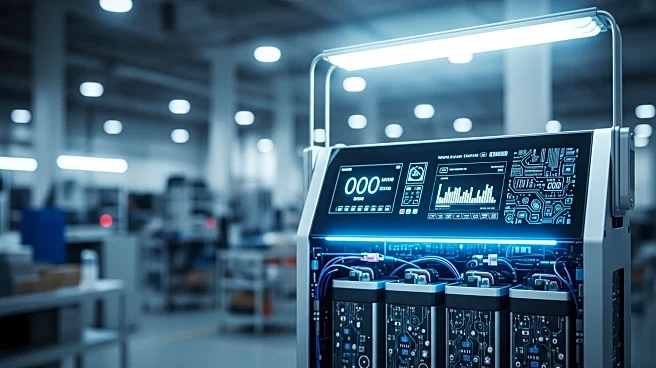What's Happening?
Honeywell has unveiled its Ionic Modular All-in-One battery storage system, designed to enhance energy efficiency in manufacturing settings. This new system integrates renewable energy sources, which are vital for the industry's shift towards net zero emissions. The battery storage enclosure and automation platform aim to optimize energy costs, manage energy demand fluctuations, and provide backup power when necessary. Honeywell's announcement highlights the growing importance of renewable energy in industrial operations, as emphasized by the National Grid.
Why It's Important?
The introduction of Honeywell's smart battery system is significant for the manufacturing industry, which is increasingly focused on sustainability and energy efficiency. By optimizing energy costs and providing reliable backup power, the system can help factories and plants reduce their carbon footprint and operational costs. This development aligns with global efforts to achieve net zero emissions, making it a crucial step for industries aiming to meet environmental standards and improve their energy management strategies.
What's Next?
Manufacturers may begin to adopt Honeywell's battery system to enhance their energy efficiency and sustainability practices. As industries continue to prioritize renewable energy integration, similar technological advancements are expected to emerge, potentially leading to widespread changes in energy management within the sector. Stakeholders, including industry leaders and environmental groups, will likely monitor the system's impact on energy consumption and emissions reduction.
Beyond the Headlines
The deployment of Honeywell's battery system could influence broader trends in industrial energy management, encouraging more companies to invest in renewable energy solutions. This shift may also drive innovation in battery technology and automation platforms, fostering a competitive market for energy-efficient solutions. Additionally, the system's ability to manage energy demand fluctuations could lead to more stable and predictable energy costs for manufacturers.









